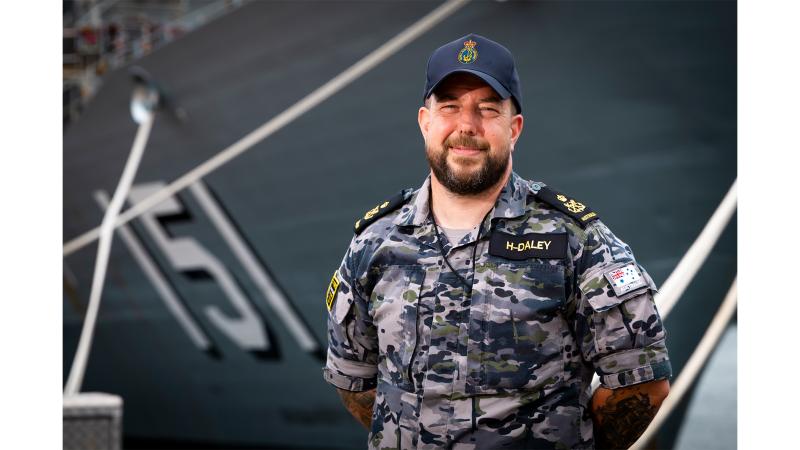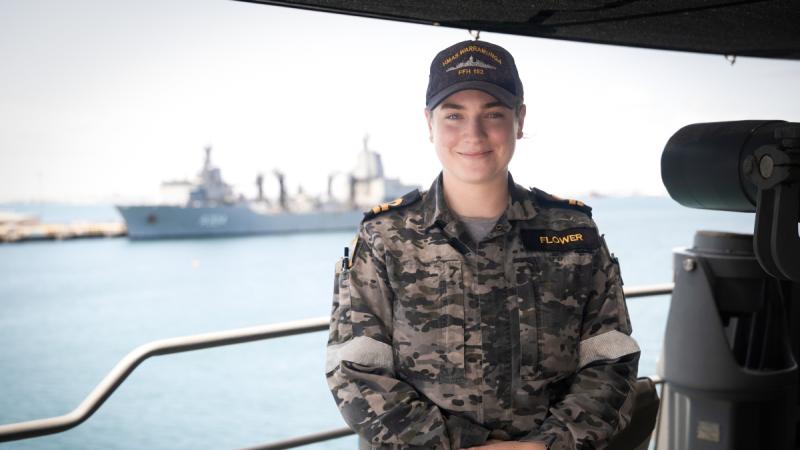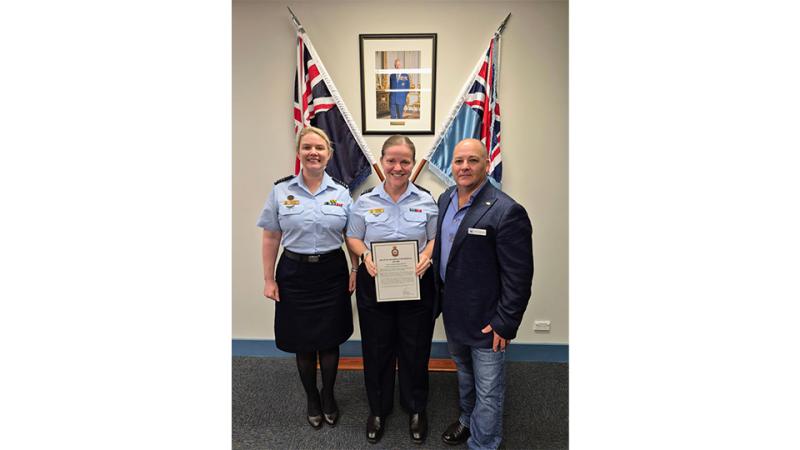12 February 2024
Two figures sat on Mt Tenant and shared the last of their food – a packet of sesame snaps – as they looked down at the Namadgi Visitor Centre, just over 4km away.
They hauled themselves onto aching legs, eager to finish a journey that started almost 20 days earlier.
A long hour later, weary feet brought them to the centre’s stairs, to be met by friends with cold drinks at the end of their odyssey.
Army Captains Monika Georgieva and Wes Walsh had completed the first recorded unsupported traverse of the Australian Alps Walking Track, trekking more than 730km in 19 days, 9 hours and 30 minutes.
They began with everything they’d need for the journey, gathering water as they went and receiving no outside assistance – the average traverse takes 4-5 weeks, with caches of supplies along the way.
After more than two years of planning, they packed their gear and drove from Canberra to start walking at dawn.
The journey began at the Rotunda in Walhalla on December 9, with a steep set of stairs to an old mining track into the mountains, and it started raining within the first hour.
“Before we had time to think about what we were getting ourselves into, we were right in the middle of it, walking uphill in the rain with the packs as heavy as they were going to get,” Captain Georgieva said.
The Victorian Alps feature steep ascents to narrow ridges, followed by equally steep descents, with temperatures ranging from four degrees on the peaks to over 30 in the valleys.
They walked from 13 to 18 hours a day, constantly re-evaluating how far they needed to go and how many hours they needed to walk.
An eye-opener came on day 11 at Mt Wills Hut when a route description on the wall made them realise they weren’t going to reach their destination within the 17 days they planned.
“We made the decision to increase the number of hours walked each day, and to push the rations out to 20 days. This meant we were effectively increasing the effort by 30 per cent and decreasing the calorie intake by 35 per cent,” Captain Walsh said.
After making it through the Victorian Alps, they arrived at the source of the Murray River, knowing that they would be walking well into the night to make up time.
As they prepared dinner, a brumby and her foal watched them from a distance, then the foal approached and began to move around them, rearing up and displaying its jumping prowess before rushing back to its mother.
“I was in a bit of a bad mood coming into Cowombat Flat; just getting sick of the tough terrain, being constantly hungry and behind our goal, and at that point having one of our biggest days,” Captain Walsh said.
“Having those brumbies interact with us, watching the foal learning to be a stallion and keep strangers away to protect the mares, but then running back to his mum, was just a really cool experience.”
The more open terrain of Kosciusko National Park allowed them to move faster, regularly covering nearly 50km a day, as opposed to 25-30km in the Victorian Alps.
Mother nature gave them a surprise on Christmas Day with non-stop rain and hail, cutting their day short with the beginnings of hypothermia – putting them even further behind schedule, knowing that day’s remaining distance would now be added to the next.
They walked 51km the next day to the Murrumbidgee river, with a storm spending much of the day trying to slow them down.
Luckily, Oldfield’s Hut stands at the foot of the Murray Gap – the barrier to the ACT – and was well-stocked with wood. They started a fire to dry out and made a hot meal, the first since running out of gas days earlier, which revitalised them for the final push.
They covered 86km in the final 33 hours and finished on the afternoon of December 28, with the enormity of what they had accomplished not setting in straight away.
“There was a sense of validation and calm in knowing we went out and did something only reliant on yourself and each other; no external help, and that was very rewarding,” Captain Georgieva said.
“The coolest and the hardest thing about doing this first is the unknown of ‘is this actually possible? Can we do it?’.”
The walk also raised money for Legacy, with more than $7000 donated from the trail walking community.
GPS data and a trip report have been submitted to Fastest Known Time to have the accomplishment officially recognised.
“Some people had expressed doubts and basically said, ‘you're crazy, this is not possible’ and ‘if it was possible, it would have already been done’. So, it was nice to get it done and I think anything's possible if you're willing to endure what it demands,” Captain Walsh said.
“Just because it hasn't been done before or hasn't been done this way doesn't mean it's not an option.”


